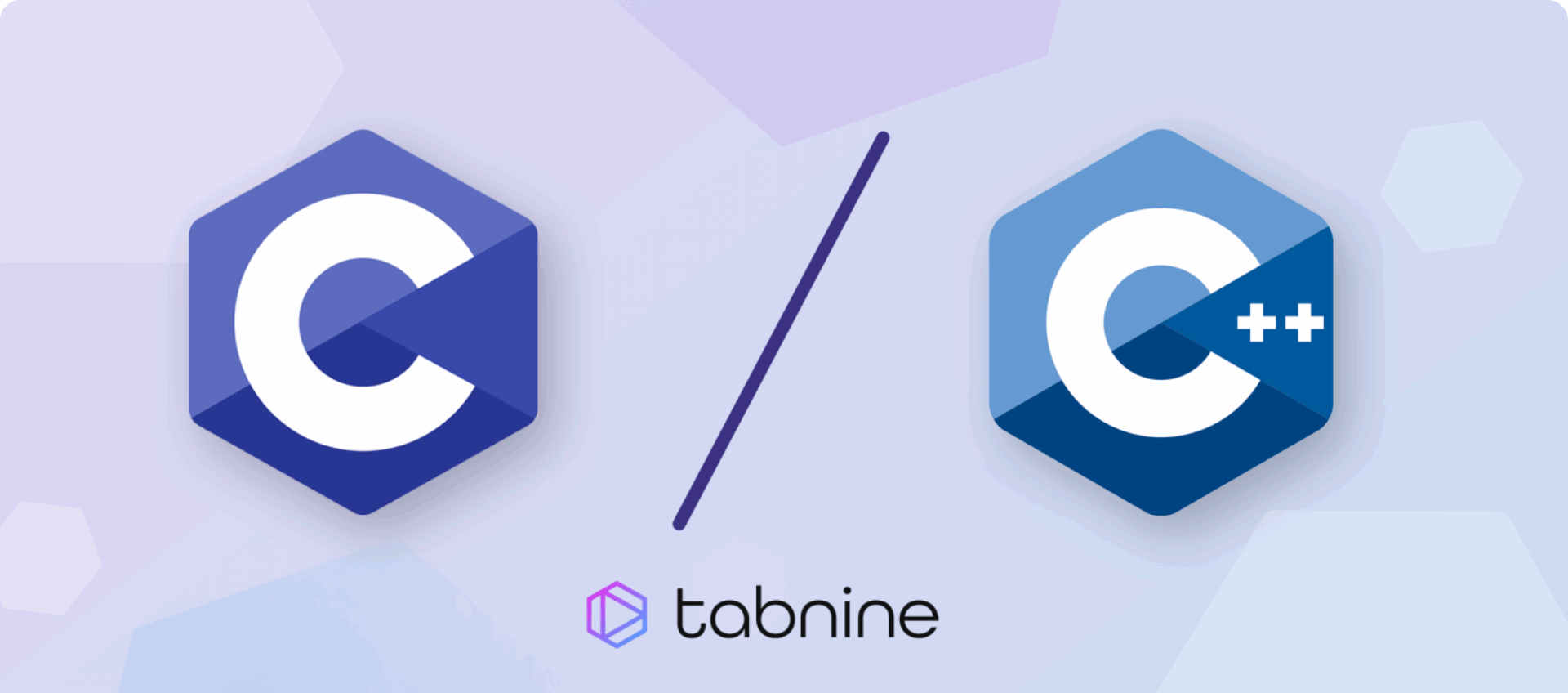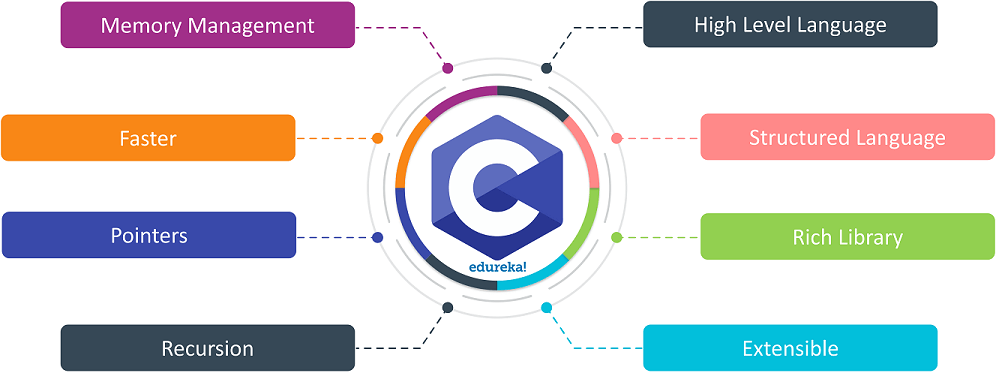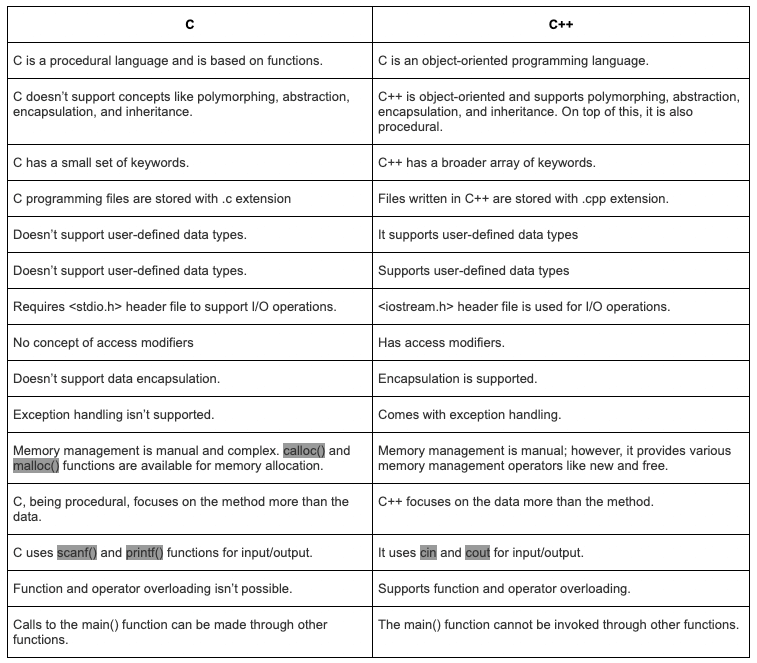
Since the advent of computers, the list of programming languages has diversified and evolved. Still, some languages have stood the test of time and are as important today as they were two decades ago. Today, several high-level programming languages are essential for developers like Python, Spark, Ruby, Java, and many more. Even though high-level programming languages are becoming more elaborate every day, few languages have been more influential than C and its more modernized variant C++. These two are among the oldest programming languages yet are still heavily used in various organizations.
C is a procedural language that Dennis Ritchie developed between 1969 to 1973. C, a mid-level programming language, can bridge the gap between low-level machine-understandable assembly languages and high-level user-friendly programming languages. C’s versatility and simplicity make it an ideal candidate for system programming, and to this day, several compilers, databases, and operating systems are built using C. The successor of C, C++, is an object-oriented programming language with additional features like abstraction and high-level features and quickly found its use in similar areas. This article discusses the key differences between the two languages.

One of the oldest programming languages, C is a mid-level, general-purpose language used widely due to its simplicity. As a mid-level language, C can combine the components of low and high-level programming languages. Even though it is primitive, learning how to code in C can help developers better understand other high-level programming languages. C is a procedural language that relies on minimal keywords and is exceptionally clean and easy to write, which helps developers increase their productivity and SD velocity. Code written in C is easily portable with little to no changes as C is understood by most language compilers. This code can also be easily extended with additional libraries and different languages.
Due to this ability of C being so close to hardware and still easily integrable with high-level programming languages, it is used widely in developing operating system kernels. Many databases like MySQL, PostgreSQL, and Oracle are produced with C.
C has various arithmetic and logical operators, making it extremely useful in embedded systems. This language has many tools that make it powerful, such as implicit conversions, recursive functions, and user-defined data types.
C also comes with low-level memory access that helps developers access machine memory by converting memory to pointers. Using libraries, developers can also perform complex operations like I/O, string manipulation, and elaborate mathematic calculations. They can leverage modularity, reuse existing code, and develop their libraries with user-defined functions.

Bjarne Stroustrup developed C++ in the 1980s as an extension of its predecessor, C. C++, sometimes called C with classes, is one of the oldest languages that popularized the concept of Object-Oriented Programming. It combines the procedural functionality of C with the more modern features of OOP. Just like C, C++ is easy to write, simple, and easy to port. Developers use it for training in understanding object-oriented programming concepts.
Although C++ borrows a lot of valuable features from C, the support for OOP sets it apart from its predecessor. The concepts of inheritance and abstraction make writing code easier and help with reusability. Developers use C++ as a system language due to its closeness to assembly and the more scalable languages of today. It can be used to design GUIs, Operating Systems, and even video games.
C++ offers efficient memory management with the help of several memory management operators that enhance the program’s performance. With dynamic and static polymorphism, developers can write several functions with similar names and use them across different applications with the help of libraries. C++ also introduced various quality-of-life features like exception handling and garbage collection, making applications more robust.
The International Organization of Standards (ISO) first standardized C++ in 1998. ISO has been amending this language over the last two decades, with the latest standardization in 2020.

Pros
Cons
The following table covers the significant differences between C and C++ programming languages:

Both C and C++ are vital programming languages and are present in systems all around us. Because of their different strengths, they are used in different use cases. An important thing they have in common is their tendency to become complex as you scale up. With the help of Tabnine, developers can develop their C and C++ code much faster and with little to no room for errors. Tabnine employs an efficient AI that autocompletes lines and blocks of code making development a breeze, saving precious time, and allowing developers to focus on what really matters. Choose your preferred IDE and get started.
[cta_btn label=”Get Started for Free”]